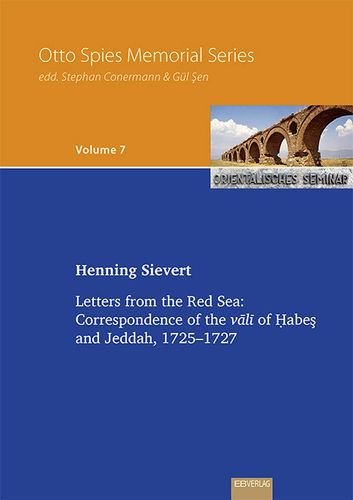105 pages, paperback,
14,8 x 21,0 cm, 2024
More information
After the Ottoman interest in the Indian Ocean had subsided, Hejaz and the neighbouring regions were at the same time on the periphery of the empire and at the centre of Muslim pilgrimage. Nevertheless, little is known about the eighteenth-century Red Sea region between Egypt, the Arabian, and African coasts before the Wahhabi and British incursions during the closing decades of the century. This contribution presents the letterbook of a governor-general covering copies of his correspondence that reflects neither the metropolitan nor the local perspective, but his own. In this way, it is possible to trace what tasks this official had to pursue and to explore how he acted as an imperial representative, addressing expectations at court, dealing with dubious subordinates, unruly soldiers, local notables, petty rulers, and suspect neighbours, as well as supplying and safeguarding the Hejaz. Having served in various capacities at the imperial court and in the provinces, the governor-general Ebū Bekr Paşa held office in the Red Sea region for several years. Surveying his correspondence in 1725–1727, this contribution elaborates on modes of communicating and political balancing.
The Author
Henning Sievert is Professor of Middle Eastern and Islamic Studies at Heidelberg University since 2018, focussing on early modern and modern history of the Middle East, Southeast Europe, and North Africa, based on source material in Ottoman Turkish and Arabic. His book publications concern knowledge and politics in turn-of-the-century Tripolitania, early modern book culture, personal relations in the eighteenth-century Ottoman realm, and late Mamluk historiography. His articles are on related subjects from clientelism and intermediating to analysing readings and personal libraries, from changing perceptions and encounters to concepts of health or law, including the—quite different—letter collection of an eighteenth-century Ottoman bureaucrat.

